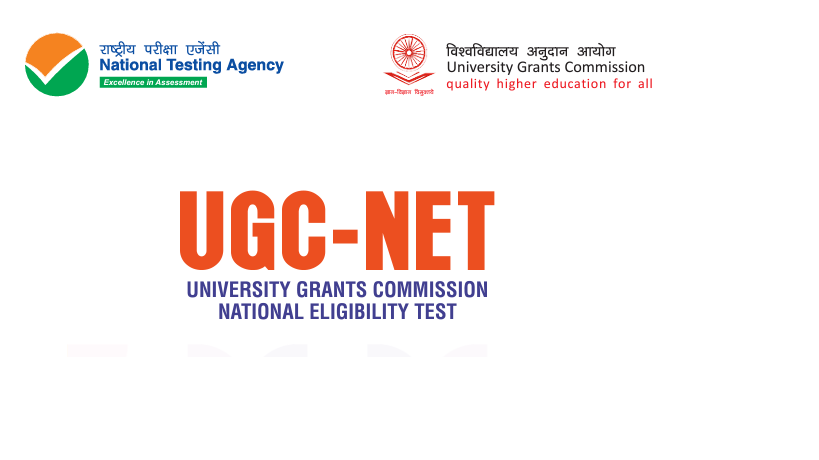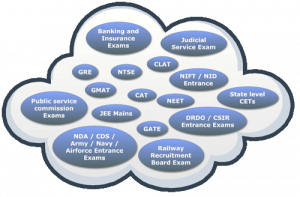Best Books to Read in 2023
Best Books to Read in 2023 Are you a bookworm or a bibliophile, if yes, then this is the ...
In the realm of academia and research, two significant examinations play a pivotal role in shaping the careers of aspiring scholars and educators: the University Grants Commission National Eligibility Test (UGC NET) and the Council of Scientific and Industrial Research National Eligibility Test (CSIR NET).
Each opens doors to fulfilling careers, but they have different qualities. In this post, we’ll compare and contrast the UGC NET and the CSIR NET so that you may choose the right one for your academic and career goals.

Also, read Difference between NTA UGC NET and JRF
Choose your academic and professional path by researching topics, eligibility requirements, and job possibilities. We’ll explore UGC NET and CSIR NET’s distinct characteristics to help you choose the route that matches your goals.
One of the foremost distinctions between UGC NET and CSIR NET lies in the subjects and specializations they cover. Subjects and areas of expertise covered are a major dividing line between the UGC NET and the CSIR NET. Humanities, social sciences, computer science, electronics, and many more are all included in UGC NET’s scope. It’s aimed at people from all walks of academia.
In contrast, CSIR NET is focused primarily on the domain of Science and Technology. It comprises five subjects: Chemical Sciences, Earth Sciences, Life Sciences, Mathematical Sciences, and Physical Sciences. This specificity makes it an ideal choice for those inclined towards scientific research and development.
CSIR NET: To be eligible for the CSIR NET examination, candidates must have successfully completed their postgraduate degree in science or equivalent with a minimum of 55% marks (50% for reserved categories) in the relevant field. There are no age-limit restrictions for appearing in this examination.

UGC NET: In contrast, UGC NET has a broader scope, allowing candidates to appear after completing their postgraduate degree in various subjects. Candidates need to secure at least 55% marks (50% for reserved categories) in their master’s degree. However, UGC NET also sets an age limit for Junior Research Fellowship (JRF) aspirants, which is 30 years.
The eligibility criteria for UGC NET and CSIR NET differ in terms of educational qualifications and age limits.
For UGC NET:
For CSIR-NET:
Also, read NTA NET Result 2023: Comprehensive Analysis and Insights
UGC NET Exam Structure:

CSIR NET Exam Structure:
The key difference in exam structure between UGC NET and CSIR NET lies in their focus. The UGC NET has a general paper that tests your ability to teach and do research, as well as a subject-specific paper. The CSIR NET, on the other hand, has three parts, with the third part focusing on the candidate’s chosen scientific field. These structural distinctions reflect the varying objectives of the two examinations and the career paths they cater to.
CSIR NET: Qualifying for the CSIR NET examination opens doors to the CSIR Junior Research Fellowship (JRF) program. Successful candidates receive a monthly stipend to support their research endeavours. Additionally, CSIR JRF qualification is a fundamental requirement for pursuing a Ph.D. in numerous prestigious research institutions across India.
UGC NET: Candidates who clear the UGC NET exam are eligible to apply for the Junior Research Fellowship (JRF) and, concurrently, can embark on their research journey in their chosen subject. Moreover, UGC NET also qualifies individuals for the post of Assistant Professor in various colleges and universities, significantly broadening their career prospects.
In summary, the decision to pursue UGC NET vs. CSIR NET hinges on your academic interests and career goals. UGC NET offers a broader range of subjects, including humanities and social sciences, while CSIR NET is a specialized examination catering to the domain of Science and Technology.
Your choice should align with your passion and aspirations, whether it’s a career in academia or delving into scientific research.
FAQ (Frequently Asked Questions):
Q1. Which is more challenging: UGC NET and CSIR NET? Both UGC NET and CSIR NET are rigorous examinations, but CSIR NET is generally considered more challenging due to its focus on scientific and technical subjects.
Q2. What are the common eligibility criteria for UGC NET and CSIR NET? The common eligibility criteria for both UGC NET and CSIR NET include a minimum of 55% marks in the postgraduate degree for general category candidates and 50% for reserved category candidates. However, specific eligibility criteria and age limits differ between the two exams.
Q3. Can I appear for both the UGC NET and CSIR NET exams? Yes, candidates are allowed to appear for both the UGC NET and CSIR NET exams as long as they meet the respective eligibility criteria for each exam
Also, read Reading Comprehension for NTA NET Paper 1: Tips, Analysis, and Practice Passages
Meet Tanu Bhatnagar, an educational expert with extensive experience in teaching, research and mentoring.With a decade in... (Full bio)

Best Books to Read in 2023 Are you a bookworm or a bibliophile, if yes, then this is the ...

In the exhilarating journey of 10 Proven Memorize Techniques for Students learning, memory is your trusty companion. Whether ...

Top 20 toughest exams in world is about exams in the world that required very hard work to ...

Top 20 toughest exams in India - Exams are the perhaps most toughest moments for any student. A ...

Top 20 Colleges of DU Getting admissions to the top 20 colleges of DU is a dream for every ...

Top 20 NITs of India - Amongst the 31 NITs in India, today, we are talking ...

Here are the Top 12 Artificial Intelligence in Mumbai. Artificial intelligence (AI) refers to the simulation of human ...

As you stand on the Best Science Courses after 12th academic journey, the realm of science beckons, offering ...
Millions of students have entrusted CollegeChalo to facilitate their seamless and smooth admission process to their dream colleges and universities. With CollegeChalo, you can gain a competitive edge by easily accessing exam and course details to stay ahead of the admission journey. What are you waiting for?
Search your dream college